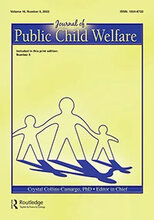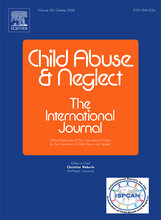Displaying 71 - 80 of 2168
This paper reviews the range of factors state legislation includes in the U.S., reviews scant existing literature on how termination of parental rights (TPRs) may effect youth, and proposes several options for ways that unproductive TPRs can be reduced, and timely reinstatements increased.
Speakers from Mothers Choice, Hong Kong and the International Parent Advocacy Network participated in the webinar and their presentations focused on:
- Examples of family based care, reunification and support in Hong Kong
- The shared goals of parents and foster carers
- The resources required to work together successfully
The story of Identity Mission tells how a program focused on supporting vulnerable children by providing family-based care solutions alongside the local church came to be and what the challenges were to creating a mission focused on family. It is the story of one person’s own transition.
IACN hosted a webinar titled 'Locating Foster Care in the Realm of Child Protection and Alternative Care for Children' in collaboration with CERI and Foster Care Society.
Debates exist regarding whether foster youth should be asked about their placement preferences following removal, with only youth aged 12 years and older at times assumed legally competent to provide input. The present study evaluated whether placement-related factors known to predict youth's well-being also shape their placement preferences and whether preferences differ between youth below and above the age at which they are considered legally competent to provide input.
Black and Latinx youth are more likely to be placed into foster care compared to non-Latinx white youth. Foster care placement can facilitate mental health service use, yet youth from marginalized and oppressed racial and ethnic groups in foster care are still less likely to receive mental health services compared to non-Latinx white youth. This study aims to examine this discrepancy Black and Latinx youth face by testing (a) whether mental health need moderates the relationship between race or ethnicity and foster care placement and (b) whether race or ethnicity moderates the relationship between foster care placement and mental health service use.
This article discussed the proceedings for placement of children in foster care by foreign authorities introduced into Polish law. The available official data indicate that the British and German authorities are the most inclined to place children with Polish citizenship in foster care in their homeland.
Childrearing in sub-Saharan Africa is often viewed as collaborative, where children benefit from support from kin. For single mothers living in informal settlements, kin networks may be highly dispersed and offer little day-to-day childrearing support, but may provide opportunities for child fostering. This study conducted in Nairobi, Kenya, uses a linked lives approach, where single mothers’ connections with kin and romantic partners may influence whether – and what type of – kin are relied on to support child fostering.
The Task Force on Foster Care of the Transforming Children's Care Global Collaborative Platform held the second spotlight webinar series on identifying foster carers on 5 May 2022.
This paper describes a mixed methods approach that was applied to evaluate the complex intervention Fostering Connections: The Trauma-Informed Foster Care Programme, a recently developed trauma-informed psychoeducational intervention for foster carers in Ireland.





